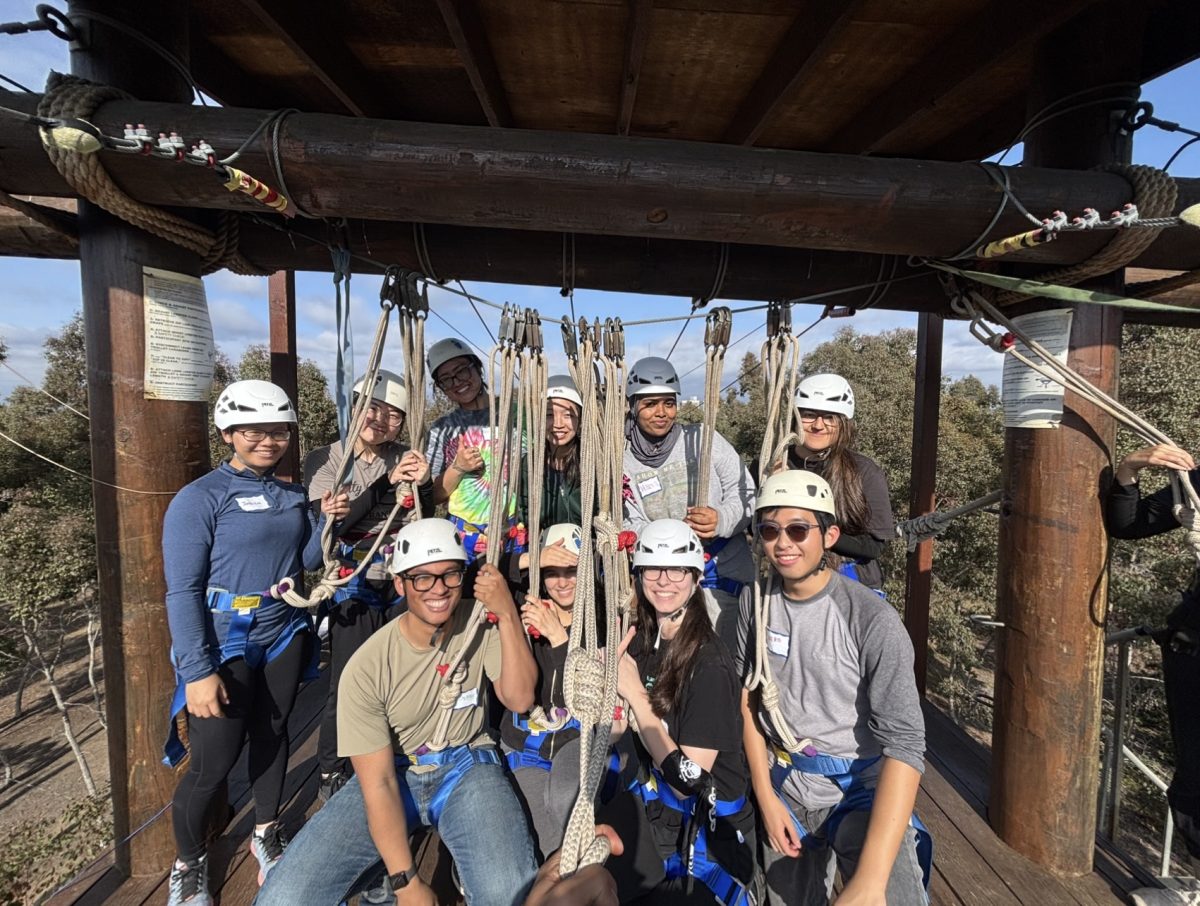Reader, if you’re anything like me, you might be experiencing some Election Anxiety. As I write this, the election is still imminent. I find myself completely preoccupied with conversations about the election, making my stance on various matters clear to the people around me, and becoming aware of other people’s stances. I like to be “in the know” in any way that I can be because, this way, I’m able to gain a better understanding of the kinds of people I surround myself with, especially when it comes to the friends I choose. But there is one really annoying downside to it: I have had to accept that not everyone in my family aligns with me politically.
Realistically, I know that there are people outside of my inner circle with different opinions than mine (which, as I currently live in the UCSD bubble, I don’t usually have to deal with until Thanksgiving…). And theoretically, I understand that my family members are allowed to have their own opinions on the election. Still, knowing those two truths doesn’t ease the sinking feeling in my stomach when I think about seeing all of my opposing-view family members for Thanksgiving in a few weeks, post-election. I’ve always loved Thanksgiving, and with my whole family flying out this year to spend it at my parents’ house, the upcoming break had me bubbling with excitement!
However, with that fateful day quickly approaching, I’ve been grappling with some concerns. I know that my family will inevitably bring up politics. As someone who has always been very outspoken about my opinions and unafraid to let people know how I feel, there is no world in which I will be able to keep my mouth shut. Respecting other’s opinions is easier said than done — especially when I’m put in a position where I don’t necessarily feel as though my opinions are being respected. So in preparation for the unavoidable political discourse that is going to unfold at the Thanksgiving dinner table, I have prepared a few key tips on maintaining peace (aka, keeping my mouth shut) during the holidays. Hopefully these will help you out too!
1. You don’t always have to agree with your family.
Coming from a big family, I know how it is to feel pressured to see eye to eye on everything, especially during the holidays when all you want is to enjoy a nice meal with the people you love. It can be easy to get caught up in conversations on touchy subjects, and before you know it, the mood in the room has changed. Speaking from personal experience, I know that always being the dissenting voice about these matters can result in feelings like guilt or shame. But it’s completely valid to feel frustrated and angry when it comes to differing opinions on politics or basic human rights, and being upset with your family members over this doesn’t make you a bad person. You shouldn’t feel bad about having your own opinions, and you shouldn’t have to feel pressured to have the same views as your family. At the end of the day, their beliefs are their own choices, not yours.
2. You don’t have to change your family’s minds.
I know it can be tempting to try to make others “see reason,” but the reality of the matter is that your relative will most likely believe that their view is reason and you’re the irrational one. Open-minded conversations about politics and ethics can be invigorating and extremely productive — but that is if everyone participating is genuinely open to learning new perspectives. Unfortunately, that rarely happens. So, if your very conservative cousin starts demanding that you prove exactly why your side is better, remind yourself that you don’t have to explain yourself or engage if you don’t think it’ll be a productive conversation. Educating others can be extremely exhausting; don’t force yourself to take on that burden if it isn’t going to go anywhere.
3. If not engaging isn’t working, then just leave!
The holidays are supposed to be enjoyable; they’re supposed to be a time when we come together and share our love with one another. If the conversation has begun to turn into a heated argument and disengaging is not working, then it might be best to just remove yourself from the environment. If you’re anything like me and tend to have a bit of a temper, this method might be the best way to keep the conversation as respectful as it can be. This obviously isn’t anyone’s preferred option — after all, why should you have to be the one to leave if they were the ones who started it? — but it’s effective and useful. There’s no rule saying you have to spend time with family members you’d really rather not talk to.
These are ultimately reminders for myself, based on the previous Election-Anxiety Induced Arguments that I’ve experienced within my family (including the Bela Discovers Feminism Fiasco of 2016 and the Uno Game Gone Wrong Disaster of 2020). As heartbreaking as it is to disagree on topics like reproductive rights, gun safety, and climate change, sometimes it’s just not worth fighting about it with relatives who have made it extremely clear to you that they do not care about other perspectives. Like I said, attempting to educate others can only go so far with people who refuse to learn. However, that shouldn’t mean that we can’t enjoy a holiday together! So, when I sit down at the table with my family members from the opposite end of the political spectrum, I’m going to do my best to remind myself of these three points — if not to keep the peace, then for my own peace of mind. Because, at the end of the day, I am only responsible for my own thoughts, opinions, and actions, not my family’s; as long as I know I’ve done everything I can to vote for a future I want, then that is perfectly enough for me.








